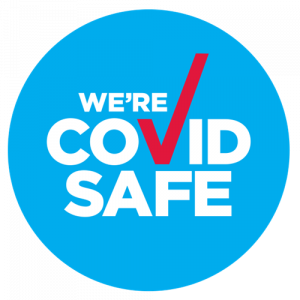What can cause speech problems in the elderly?
As people age, changes in speech, voice, language, memory, and swallowing occur naturally. Communication problems are common in aged care settings with many living with at least one communication disorder.
Older people are at higher risk of stroke, or developing dementia, Parkinson’s disease, hearing loss, or voice disorder which can cause a communication and/or swallowing disorder. Stroke is a leading cause of communication impairment in older adults. One in three survivors will experience aphasia which is a language impairment causing difficulties in understanding, speaking, reading, and/or writing. The majority of people living with Parkinson’s disease have a speech or voice disorder. Voice disorders can have a significant negative impact on quality of life leading to depression, anxiety, and social withdrawal. Many older people live with a communication disorder, impacting their ability to express their needs and wants, maintain relationships, and participate socially in their community.
What services does a speech therapist provide to the elderly?
Speech pathologists work with older people to improve their communication and swallowing abilities. Services may include:
- Assessment of speech, language, voice, and swallowing Provide safe swallowing strategies to clients and carers
- Educate client on appropriate swallowing technique.
- Plan and manage mealtimes.
- Recommend modified food/fluid textures.
- Provide speech therapy to improve speech intelligibility.
- Provide voice therapy.
- Provide language therapy through remedial and/or compensatory approaches.
- To promote accessibility and inclusion, a speech pathologist may recommend communication technology to support communication in daily activities and social settings.
- Individual or group therapy.
How can the elderly improve their swallowing?
Older adults may develop swallowing problems due to stroke, motor neuron disease, Parkinson’s disease, dementia, cancer of head/neck or head injury. Swallowing problems can have a huge impact on a person’s life. Eating and drinking can be frustrating and uncomfortable, causing anxiety, depression, and social isolation. Symptoms may include:
- Feeling of something stuck in throat.
- Coughing, choking, or frequent throat clearing during or after eating or drinking.
- A wet or gurgly voice during or after eating/drinking.
- Shortness of breath or changes to breathing while eating and drinking.
- Difficulty swallowing certain foods.
- Extra time needed to chew or swallow.
- Unplanned weight loss.
- Frequent chest infections with no known cause.
If you have any concerns with your swallowing or that of a loved one, see a GP who may recommend assessment with an ENT or speech pathologist.
Safe swallowing strategies that everyone can include in their meal-times:
- Sit upright (90 degrees) when eating and drinking.
- Stay upright for 30 minutes after drinking/eating.
- Take small mouthfuls/sips, slowly.
- If you start coughing, stop eating/drinking, have a good cough, wait until it has passed to continue.
- Limit distractions (e.g. turn off t.v.) when eating/drinking.
- Don’t talk and eat at the same time.
- Don’t eat or drink too quickly.
- Alternate between foods and liquids.
- Take a couple of swallows for each mouthful.
- Maintain adequate oral hygiene by cleaning teeth after meals.
Benefits of speech therapy for senior adults?
- Help swallowing problems to support safe mealtimes and quality of life
- Improve communication effectiveness to maintain/increase independence in daily life
Does speech therapy help with memory?
Communication difficulties are commonly seen in people with dementia. In the early stages of disease, a person may experience symptoms including difficulty finding words, losing train of thought, repeating themselves, and forgetting recently heard information. This can be very distressing for the person and their family. Speech pathology can provide strategies and therapy to support maintenance and/or improvements in memory and support the family through this difficult time.
If you or your loved one are having any communication or swallowing difficulties, speech pathology assessment and intervention is recommended.
If you have any concerns about something in this post, please do not hesitate to call us (02)4953 6128 regarding your concerns. All our therapists are trained and experienced in implementing therapy targeting communication and swallowing difficulties in older adults.

